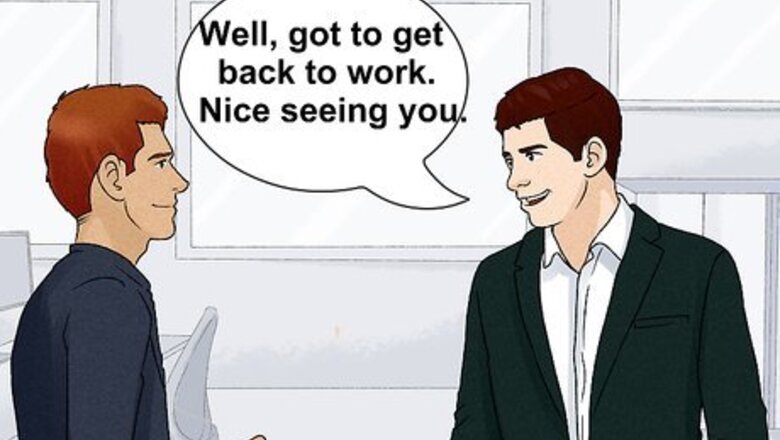
views
Navigating the Office
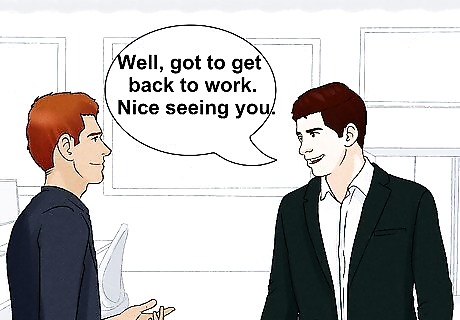
Try to limit interactions. While it's not always possible to completely avoid a co-worker, you can strive to keep interactions as infrequent as possible. Simply avoiding interaction is probably the easiest way to cope. Some interactions are probably unavoidable, especially if you two work together directly. However, you can avoid chatting with this co-worker in the break room or during downtime. If you notice your co-worker come in, politely excuse yourself by saying something like, "Well, got to get back to work. Nice seeing you." When you do have to interact with the co-worker, keep things professional. Avoid bringing up personal matters or things irrelevant to the task at hand as, when dealing with someone who dislikes you, this is an invitation for negative interaction.

Be nice to the offending person. Many psychological studies indicate that it's very difficult to dislike someone who likes you. If your co-worker feels you respect and like him or her, some of the dislike he or she may have towards you might fade. Tell someone else in the office that you like and respect the problem co-worker. That information may get repeated secondhand. When such a message does not come directly from you, your co-worker may be more likely to believe it. Show a genuine interest in your co-worker's input. People tend to like people who pay attention and engage with them. While you should still stick to avoiding this person when possible, during the times you do have to interact listen to what he or she says actively. This might make your co-worker's dislike you less. Small, friendly interactions can help as well. Something as simple as "good morning" can go a long way.

Separate your work life from your personal life. If you have trouble interacting with a particular colleague, try to separate your work life from your personal life. You do not have to socialize with colleagues outside of work. If the co-worker who dislikes you is frequently part of Friday night happy hours, forego these events and seeing the friends you know from outside work.

Report the situation if it gets out of hand. You do not want to report behavior unnecessarily. However, you should certainly report any behavior that's interfering with your ability to do your job. Talk to Human Resources if the situation gets out of hand. Management can help negotiate situations if your ability to do your job is threatened. You should keep a record of your interactions for a week or so if you plan to report just so you have solid information to show to officials. Make sure you focus on how your co-worker's behavior affects the company. Speak in objective terms and explain about how productivity and morale are damaged by your co-worker's attitude. Remember, this is a last resort. You do not want to get labeled the office tattletale. You should only report your co-worker if you feel he or she is harassing you, attacking you personally, and is persistent in his or her actions despite your attempts to avoid or rectify the situation.
Coping Emotionally

Keep a healthy perspective. Emotionally, keeping a healthy perspective is one of the best ways to cope with a negative co-worker. Stay focused on your larger dreams and career goals. Avoid getting caught up in petty workplace drama. When you get frustrated, consider where you want to be in the next year or the next five years. How much does this co-worker really matter when it comes to your longterm goals? How long will you actually be working together? It's more than likely your troublesome co-worker will not be part of your career for the long run. Can you learn from the situation? Try to see the situation as a lesson in how to treat others. If your co-worker's dislike is making work difficult, do not replicate that kind of behavior in any future interactions.

Detach from the situation emotionally. While it's easier said than done, sometimes the best way to deal with a negative situation is to find a way to remove yourself emotionally. Try to simply ignore the behavior by refusing to react to it. It can help to engage in relaxation techniques throughout the day. You can try steadying your thoughts by hyper focusing on the present moment. Take stock of your body, your breathing, your surroundings. This will stop you from becoming upset by your co-worker's actions by placing focusing on the physical alone.

Find a support system outside of work. Whatever you do, do not bad talk your co-worker to other people in the office. This will not only reflect poorly on you, it can easily get back to your co-worker and make the situation worse. Everyone needs to vent sometimes. It's okay if you want to get your frustrations off your chest. However, keep your venting outside the office. Talk to friends and family members you know from outside work rather than acquaintances from the office.
Analyzing the Situation

Consider your co-worker's perspective. While it might be difficult to accept, there could be something you're doing to make your co-worker dislike you. Try to consider your co-worker's perspective to see if there's been any bad behavior on your part. Jealousy often fuels dislike. Your co-worker could see you as more successful or see traits in you that he or she lacks. While you can't necessarily eliminate your co-worker's jealousy, consider whether you've been overly smug or boastful about your success. If so, this may be fueling the dislike. People can mistake shyness as rudeness. If you simply do not interact with your co-worker frequently, he or she might think you're cold. Trying to be a bit friendlier can help. Do other people in the office seem to like you? If not, you may be inadvertently engaging in behavior others find off-putting. Try talking to a co-worker you're close to and ask him for objective feedback on your behavior. See if there's anything you're doing that could be off putting to others.

Review past interactions with the co-worker. Carefully review any past interactions you've had with your co-worker. Sometimes, people dislike others for a single bad interaction. There may have been something you said or did that's fueling the dislike. It could be something simple, like you not holding the elevator by mistake one day. You could have also accidentally said something insensitive, like a comment on your co-worker's outfit he or she took the wrong way. If you identify any past mistakes on your part, offer your co-worker a sincere apology. If the dislike stems from a simple misunderstanding, it can probably be cleared up with a quick conversation.
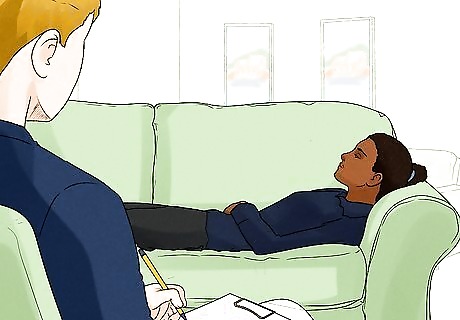
Evaluate your stress level. Be honest with yourself about how much the situation is bothering you. If you're unable to separate your work life from your private life, it may be time to look for another job. Be aware, however, that difficult people exist in every profession. If difficult co-workers really get to you, it might be a good idea to see a therapist about managing your overall stress.













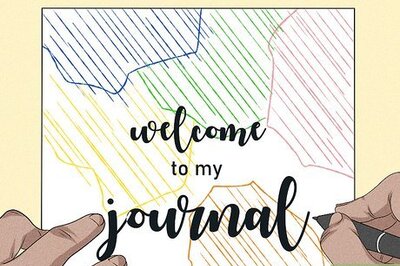





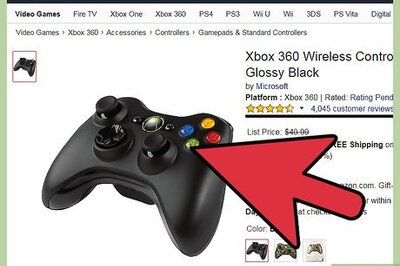
Comments
0 comment